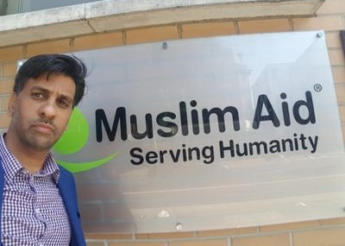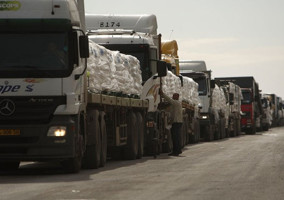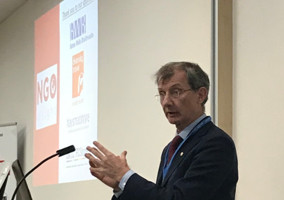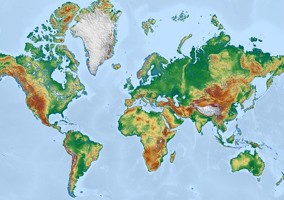International aid organisations are guilty of giving higher profile to their emergency work than their long-term work, and then only returning to the story when there is another disaster, Jehangir Malik, Muslim Aid UK’s chief executive, said this week.
Malik was speaking at Civil Society Media’s NGO Insight conference on Tuesday on a panel on ‘Stating the case for aid in light of changing public perceptions’.
He said that international development organisations need to be better at demonstrating their impact.
He said: “I think the story moves on, and that is where the challenge lies, we only come back to the story when there is another disaster. I think we are guilty as aid organisations of chasing the emergencies and the disasters and profiling those above some of our long-term impact development stories.
“We need to ensure that we carry the story through, as difficult as it is, secondly to demonstrate the impact that we are making, third to ensure that the communities we are working with that we are not speaking on their behalf and that they are part and parcel of that voice.”
He said it is difficult to show the difference they make as “poverty can’t be minimised to a soundbite”.
Speaking of the Syria context, which he said has been going on for five or six years, “we as aid organisations need to be very true and honest to say that it is a political crisis, and you won’t solve a political crisis through humanitarian aid”.
He said: “It is better to be upfront, I have been saying that personally from day one, so that there is a degree of honesty and we are not over-selling the story."
He added: “Honesty, as Kevin was saying earlier, is absolutely key. What is most important is that we organisations demonstrate how we are contributing to reducing inequality, working with the local communities that we are looking to bring changes to and be honest with what we are doing. And not painting a picture that says we can resolve the entirety of this complex situation, and demonstrate the impact that we are happening.”
‘It is right that DfID is held to account’
Tim Singleton, director of communications at the Department for International Development, was also speaking on the panel, where he spoke of the importance of the government department communicating accurate messages.
He said that it is important that DfID is “fundamentally honest” about where money is spent.
He said it is not enough when DfID’s spending is criticised to just blame a “hostile media” and only talk to the people that support its work. He said: “We need to do more than that. For DfID of course we need to be fundamentally honest, the money we have the privilege to spend comes from the tax payer, and they have got a right to know that we spend it well on things that are worthwhile. And when that concept is challenged we have got a duty to explain that decision. It is right that we are held to account.”
But Singleton added that it is also right to “challenge mistakes and distortion and untruths”.
He said: “What can we do? I don’t think we should sit and wait for the storm to pass, there are big issues out there with the public, we can’t deny that, and we have got to win trust. We need to show that we can spend money well and provide the evidence.”
Singleton went on to say the importance of “showing what international development achieves”, he said “because sometimes we are too anxious to move onto the next announcement and leave the last one behind before we have finished the story”.
He added: “We need to connect with the public, complete the circle and not just explain that we are spending money on things but also explain what the ambition is and what the end result is. And celebrate the successes in international development. And that is our strategy, to show everyone that international development is in everyone’s interest, not only the world’s poorest but also in the British tax-payers interest.”
Related articles












